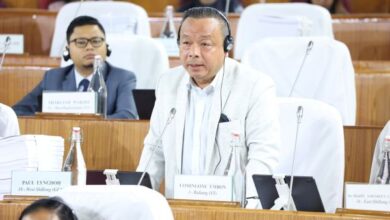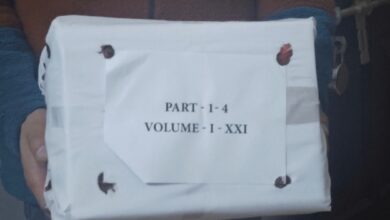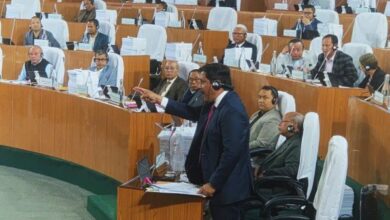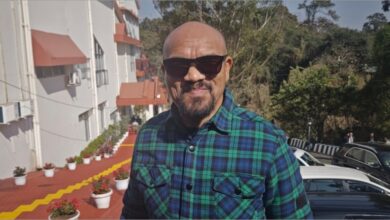
Shillong, Feb 18: The KHADC-JHADC polls are scheduled on February 21.
The campaigning for the polls ends on February 19 at 4 pm (48 hours before the end of polls) which is also called silent period, a norm as per the Election Commission of India (ECI) guidelines.
The District Council Affairs department has depended on provisions of both the Assam-Meghalaya District Council Rules 1951 and the ECI guidelines to conduct the elections in the absence of a State Election Commission.
Limitations in model code of conduct
The district council affairs department fully depended on the Assam-Meghalaya District Council Rules 1951 to frame the model code of conduct for the polls
While the model code of conduct comes into effect the day the elections are announced by the ECI, the case of district councils is different as the district council affairs department waits for the notification of the election for the model code to be effective which is simultaneous with the filing of nominations.
Using this non-model code of conduct period, Chief Minister Conrad Sangma had on January 21 released Rs 40 crore of states’ revenue share to the JHADC CEM at the office of the council.
Two deputy chief ministers, cabinet ministers, Jowai MLA, MDCs and other council functionaries were also present.
Meghalaya governor approved the polls on December 16, 2024 whereas the notification was issued only on January 27 this year which was also the start of filing of nominations by the candidates.
Any violation of the model code of conduct shall be addressed to the Deputy Commissioner, says the code quoting the district council rules of 1951.
Unlike the Chief Electoral Officer and the Election Commission of India, the deputy commissioners who are returning officers of the council polls have limited role to play as their powers are derived from the 1951 council rules supervised by the district council affairs department and not by the ECI
Some candidates said there is a need to update the rules with the changing times as currently only polling personnel are allowed to use postal ballots as there is no provision for home voting and postal ballots for the elderly citizens and the differently abled.
According to the Commissioner and Secretary of the District Council Affairs department, Cyril Diengdoh, the department has not received any complaints of model code violations.
Schedule untimely during exams
The holding of elections during the ongoing HSSLC and SSLC examinations is untimely as many parents and students have expressed concern over distraction due to the use of public announcement system and playing of songs by various political parties.
Election Commission of India normally avoids polls during examinations and festivals.
No flying squads, static surveillance teams
No cases of seizure of liquor and money were reported during the electioneering process.
A senior police official said the police could not form flying squads and static surveillance teams in the absence of manpower.
As the state has to manage the security forces, additional forces were drawn from Garo Hills to be deployed in Khasi and Jaintia Hills.
Rs 5 lakh expenditure limit
The upper limit for a candidate to spend during the polls is Rs 5 lakh. Within two months after the elections, the account should be submitted to the Returning Officer.
The amount is meagre and it is based on the district council rules 1951.
No transparency in income declaration
The candidates have no provisions to declare income by way of affidavits when they file their nominations thereby depriving the voters to know more about the candidates.
Only the criminal antecedents, if any, are filed by the candidates.
Caption for photo: A poll official registers postal vote on Feb 18 at DC’s office in the city (MM)





